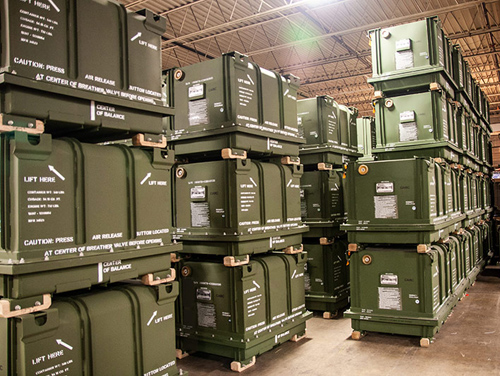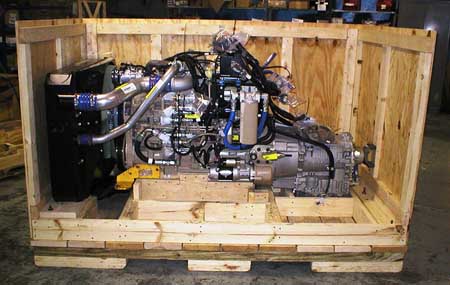
What Is Mil-Spec Packaging?
It all started around World War II. Containers were sent overseas with essential cargo for military efforts, only to arrive compromised due to improper packaging. Packaging issues delay transportation, damage goods and hamper logistics, so the military implemented a number of protocols for packaging. Here are just a few areas that Mil-Spec packaging requirements may differ from standard packaging requirements:
- Container design and materials
- Handling of containers
- Inspections
- Transportation
- Storage
What Are the Different Military Packaging Guidelines?
There are a range of military packaging specifications and guidelines. For many manufacturers, it’s more cost efficient to outsource packaging to a company offering custom packaging services, like Export Corporation. Here are the basic packaging guidelines that your equipment and supplies may need to meet as part of your military contract:
- MIL-STD-129: This standard describes the legibility, color and size of any markings on containers for military storage or shipment.
- MIL-STD-130: All U.S. military property needs to be marked and tagged with specific identification markings. From electronic serial numbers to commercial and government identity codes, this standard outlines the proper placement and design of package identification.
- MIL-STD-1686: Electronic and electrical equipment and related patriots need special handling, classification and protection. These packaging standards ensure sensitive equipment isn’t damaged and the package contents don’t damage other electronic equipment.
- MIL-STD-2073: A crucial standard for anyone working with military contracts, this standard deals with quantity per container, kitting requirements and other packaging requirements.
- MIL-STD-3010: Any material used in military packaging needs to meet the test procedures outlined by this standard. Particular concerns are seam strength, puncture resistance, static decay and oil resistance.
These guidelines contain many precise specifications regarding every step of packaging and shipping. Instead of dedicating your team to managing these requirements, it may be more cost effective to turn to a third-party team of packaging experts.
Types of Mil-Spec Packaging

There are a wide range of packaging materials and styles that can pass the Mil-Spec requirements. These packaging solutions can be divided into interior and exterior packaging. Bags and other packaging can be further divided into different types, classes and styles.
Items meant for exterior packaging need to be durable, easy to handle and uniform. These products include drums, boxes and cans. They can be created with wood, metal, paperboard or other materials as long as they pass the military packaging test procedure outlined in MIL-STD-3010.
Interior materials include tubing, sleeves and bags. Bags can be quite light or extremely durable, depending on the application. Some bags are designed to be grease proof, while others are electrostatic and electromagnetic shields. Approved materials can be opaque or transparent, depending on the application.
Mil-Spec Crates and Wood Packaging
Our Michigan packaging company specializes in crating services and wood packaging solutions that offer Mil-Spec quality. We start with CAD and Crate Pro designs to create MIL STD 2073 packaging to fit your equipment or components. Mil-Spec crates, skids, bases and other wood products are all designed to meet the specifications and safely ship your items to fulfill your contract.
Contracting with the U.S. military may require your company to create custom components and ship them following strict Mil-Spec guidelines. These restrictions can easily delay the process and add significant costs to your manufacturing process if you aren’t equipped to create custom wood packaging. When you work with Export Corporation, you don’t have to be concerned about military specifications, exterior crating or dunnage materials.
